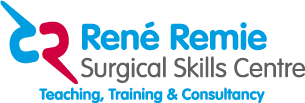I attended a 5-day rodent surgery training session with RRSSC in October 2020. This training occurred at the start of my PhD and I am very glad that I had this training so early on in my career. René’s knowledge and experience are phenomenal and I believe that having this training has provided me with a brilliant base set of skills to carry forwards in my research.
René explained the key parts of rodent based research – including suturing, anaesthesia, instruments, asepsis, surgical techniques, and using a microscope. The way in which he explains their importance in research means that you understand why you are doing different processes, not just that you have to do them – I found this very beneficial and it has given me more understanding as to why certain things are done the way they are. René’s knowledge of the history behind rodent surgery and research is also outstanding, which brings even more of a relevance to the work that you are doing.
The second part of the course was tailored to the different techniques that we needed to learn for our own research. For me, this included injections into the hepatic portal vein (HPV), injections under the kidney capsule, and an attempt at catheterising the HPV in mice. René explained to us how to do the specific techniques, watched us perform them, and gave us tips on how to refine our technique to ensure more success and in ways which are more beneficial to the recovery of the animal, which was especially helpful as I had no previous microsurgery experience. René’s ‘goal-orientated’ methodology and constant reminding of basic skills ensured that we were performing complex procedures in ways that were sustainable for when this is applied to actual experiments, and in the best interests of the animals.
Overall, I would highly recommend training with RRSSC, especially at the beginning of a career in animal experiment-based research. René and his wife, Elizabeth, were very welcoming and you instantly felt at ease to ask any questions or ask for advice throughout the week.
